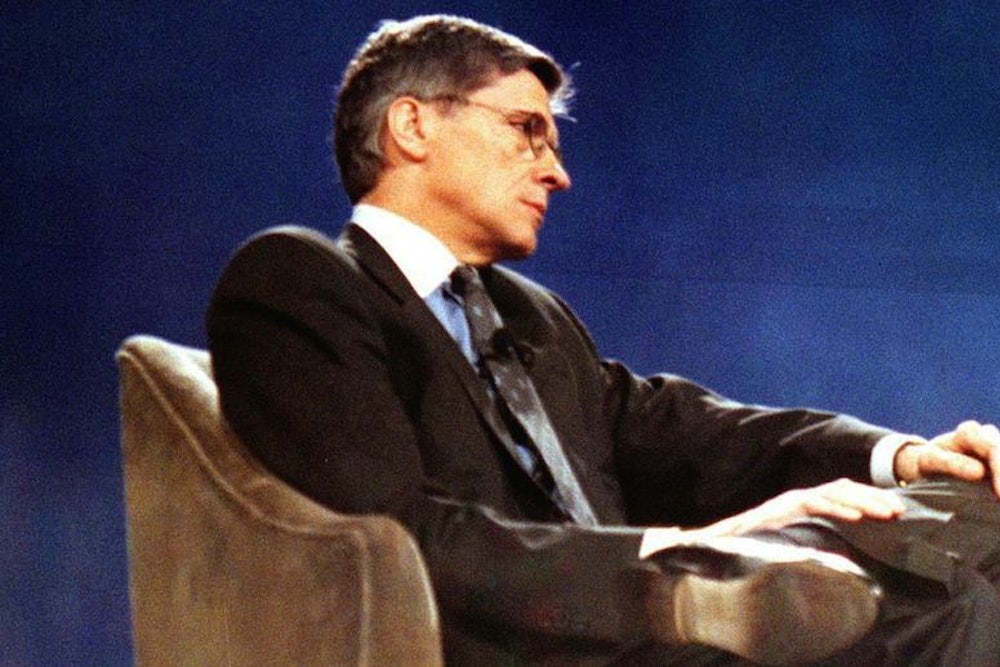After months of rumors about who’ll be the next leader of the Federal Communications Commission—or even whether the last head, Julius Genachowski, would ever leave—the White House has finally confirmed that Tom Wheeler’s the guy. He’s been a lobbyist for the cable industry and cellphone carriers, which open-Internet groups like Public Knowledge typically oppose, and he indicated support for the failed merger of AT&T and T-Mobile, which the group vociferously campaigned against.
And yet, Public Knowledge seems to be alright with the pick, releasing a statement saying that Wheeler would be an “independent, proactive Chairman who will not allow the FCC to become irrelevant.” Free Press sounded guardedly optimistic that he’d work out alright. Heck, even Susan Crawford—a prominent crusader against the likes of AT&T and Verizon, and a long-shot candidate for the job herself—signed a letter supporting Wheeler earlier this month.
What gives?
It may be a simple issue of loyalty and the trust born from familiarity: Wheeler bundled $250,000 for President Barack Obama’s reelection campaign, and already heads the FCC’s technology advisory council. Crawford’s pro-Wheeler letter was co-signed by a number of former Obama administration tech types. And Public Knowledge director Gigi Sohn said she’s known Wheeler for “a number of years.” It might also been a rational calculation not to bash someone they’re going to have to work with for the next three years—that Washington tightrope walk of maintaining access to the powerful while also maintaining pressure on them.
The real issue, however, is that the public interest community may not have had a better option. Crawford would never have made it through the Senate, having made a bitter enemy out of the powerful wireless industry. And Wheeler, unlike other rumored candidates like Obama policy brain Karen Kornbluh and sitting FCC commissioner Jessica Rosenworcel, is likely on his last job: He won’t be positioning himself to maintain potentially lucrative relationships in the future, like some advocates have suspected of Genachowski (all he’s done so far is join the Aspen Institute). That leaves him free to aggressively regulate, which advocates argue Genachowski failed to do in the areas of net neutrality and broadband competition, largely ceding the FCC’s authority over Internet communication as the phone system moves from copper wires to Internet protocol.
“Send us no scholar,” wrote Public Knowledge’s Harold Feld in March. “Send us no visionary to lead us into the promised land of gigabit broadband, nor an ideologue wedded to a philosophy. Send us no seekers of grand bargains or painful compromises. Instead, send us someone who likes to get their hands dirty.”
Will he though?
Open-Internet advocates—those who worry about the FCC’s continuing strength and relevance—should take some solace from the blog post in which Wheeler laid out his support for AT&T’s proposed merger with T-Mobile, arguing that a bigger AT&T could’ve been confined by a consent decree in the public interest. “Absent a new vehicle the regulation of marketplace behavior that has characterized telecom regulation for almost a century is headed towards the same fate as the dial tone—another fatality of digital zeroes and ones,” he wrote.
It’s clear that’s something Wheeler doesn’t want to happen. And maybe he’ll be able to come up with a new solution to prevent it.
